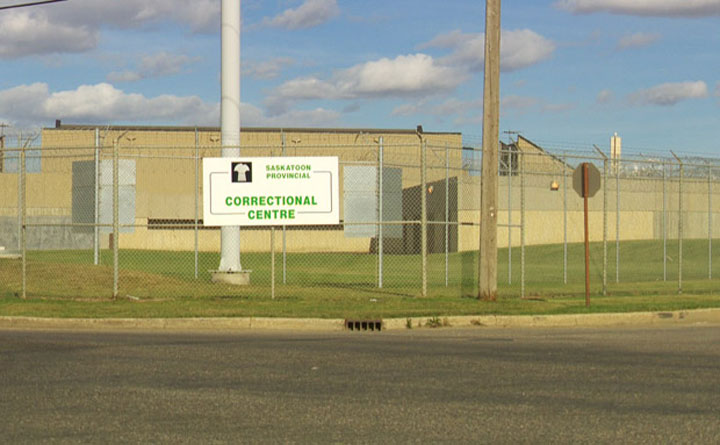As of April 3, a sixth staff member at Saskatoon Correctional Centre has tested positive for COVID-19.

Noel Busse, communications branch executive director with the Saskatchewan Ministry of Corrections and Policing, said this staff member has been directed by public health authorities to self-isolate at home.
The ministry said it’s working with public health authorities to determine who the sixth correctional officer may have come into contact within the facility and what measures need to be taken as a result.
“There’s no indication it’s spreading within the facility and there’s not necessarily any indication that it was spreading between staff,” Busse said.
Busse said, currently, no inmates have been confirmed as having COVID-19 in Saskatchewan correction facilities.
Community organizations and advocates across the province sent a joint letter dated April 2 to Corrections Minister Christine Tell, requesting action on measures to mitigate the risk of further transmission of the virus in prisons.
The signatories to the letter provide legal representation to prisoners and advocate for a humane criminal justice system, it read.

Get weekly health news
It calls for the controlled release of non-violent inmates, specifically those over the age of 50 with serious health issues or who are immuno-compromised to improve physical distancing among those remaining in prison.
Busse said the ministry has reviewed the letter sent out by the advocate organizations regarding potential steps that could be taken to reduce the potential for infection in our correctional facilities.
“There are currently no plans to make any changes to existing early release or reintegration programming,” he said.
“However, it’s notable that since the middle of March, there has been a 21 per cent reduction in the offender population in custody. This has allowed for increased social distancing and better management for both remand and sentenced offenders.”
He added many of the group’s actions have already been put in place, including the hiring of outside cleaners, limiting programming to accommodate smaller groups of offenders and controlled access to hand sanitizer.
The letter also called for adequate medical and psychiatric care in place for those remaining in facilities, including access to elders. The group said there is increased fear and tension among prisoners, and access to mental health support is crucial.
“Recently to ensure offenders have adequate personal support at this time, we’ve provided the opportunity to contact the chaplains and the elders that work in the facilities by phone in lieu of face-to-face meetings. So those calls are free and they’re considered confidential,” Busse said.
“Normally offenders would meet with chaplains and elders within the facility for the most part. But I believe we’ve provided the chaplains and the elders with cell phones that they can use to be contacted by the offenders to provide additional support at this time.”
Questions about COVID-19? Here are some things you need to know:
Health officials caution against all international travel. Returning travellers are legally obligated to self-isolate for 14 days, beginning March 26, in case they develop symptoms and to prevent spreading the virus to others. Some provinces and territories have also implemented additional recommendations or enforcement measures to ensure those returning to the area self-isolate.
Symptoms can include fever, cough and difficulty breathing — very similar to a cold or flu. Some people can develop a more severe illness. People most at risk of this include older adults and people with severe chronic medical conditions like heart, lung or kidney disease. If you develop symptoms, contact public health authorities.
To prevent the virus from spreading, experts recommend frequent handwashing and coughing into your sleeve. They also recommend minimizing contact with others, staying home as much as possible and maintaining a distance of two metres from other people if you go out.
For full COVID-19 coverage from Global News, click here.












Comments
Comments closed.
Due to the sensitive and/or legal subject matter of some of the content on globalnews.ca, we reserve the ability to disable comments from time to time.
Please see our Commenting Policy for more.